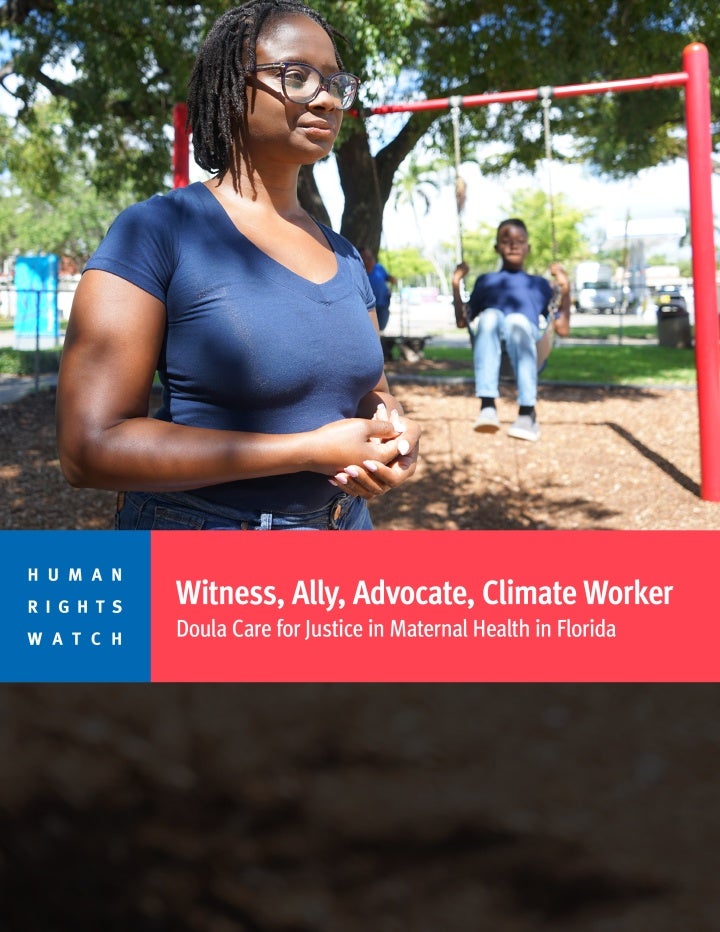Witness, Ally, Advocate, Climate Worker
Doula Care for Justice in Maternal Health in Florida
The 62-page report, “Witness, Ally, Advocate, Climate Worker: Doula Care for Justice in Maternal Health in Florida,” found that the state provides inadequate financial and programmatic support for doula care, including under state-based Medicaid plans on which almost half of all women who are pregnant or give birth in the state rely. Doulas are non-clinical health workers who provide expert support during birth and provide individualized information about health care options, rights, and resources. Academic and US government research suggests that doula services can help improve the availability, accessibility, and quality of health care services for pregnant people. One multi-country analysis of evidence found continuous labor support by doulas may reduce rates of cesarean delivery and improve Apgar scores (indications of good health in newborns) and women’s ratings of the experience.
